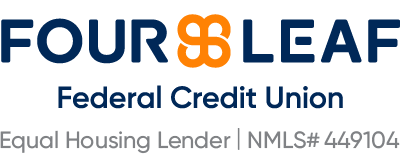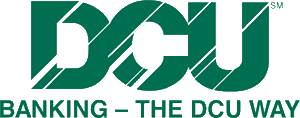Many borrowers turn to personal loans when they need money. They’re cheaper than credit cards, convenient to secure, you can use them for many purposes, and borrowers with a good credit history can score excellent loan rates.
You’ll find plenty of loan options from online lenders, but they’re quite different when you start exploring their terms. Some are fee-free; others are transparent about the fees upfront. And some don’t make the fees evident until you’ve completed an application.
Being educated about the personal loan process and what’s available can help save you money. We’ve researched the best no-fee personal loans and all the charges you should avoid.
Table of Contents
4 best no-fee personal loans
Your credit score is a reliable guide to the type of personal loan lender you should apply with. Most lenders focus on borrowers with certain credit scores. Some lenders will only approve you if you have excellent credit, for example, while others specialize in bad-credit loans.
Often your bank or credit card company will offer free credit score updates. You can also pay to see your FICO score. Most people use a service such as Credit Karma to see their VantageScore—which is often close to the FICO score lenders use but not always exact.
Credit scores fall into the following categories, which you can use to guide your choice of lenders to shop with:
- 800+: Excellent
- 740 – 799: Very good
- 670 – 739: Good
- 580 – 669: Fair
- Less than 580: Poor
We’ve ranked and rated the best no-fee online lenders for people with good, fair, and bad credit scores to make it easier for you to find the loan that’s right for you.
| Lender | Best for | LendEDU rating (out of 5) |
| SoFi | Good credit | 5.0 |
| LightStream | Excellent credit | 4.8 |
| FourLeaf Federal Credit Union | Credit union | 4.2 |
| Digital Federal Credit Union (DCU) | No-payment period | 3.7 |
Best no-fee loans for good credit
Best for good credit: SoFi
LendEDU rating: 5 out of 5
- Same-day funding available
- Autopay and direct deposit discounts
- Accepts co-applicants
SoFi is worth considering if you have good to excellent credit. Founded in 2011, SoFi offers top-notch customer service and a quick online application process for a comprehensive list of loan types.
With SoFi, you can borrow as little as $5,000 or as much as $100,000. You can also check your rates with no impact to your credit score.
If you decide to apply with SoFi, you could enjoy same-day funding. SoFi says 82% of its borrowers who signed their loan agreements before 7 p.m. Eastern received their loan proceeds that day.
Best for excellent credit: LightStream
LendEDU rating: 4.8 out of 5
- Same-day funding available
- Score a 0.10% lower APR if you qualify for the Rate Beat Program
- Terms as long as 144 months
LightStream is a solid option for personal loans with no origination fee. LightStream doesn’t charge prepayment penalties either, so you can pay down your loan early without any additional fees.
LightStream’s competitive APRs start at 7.49% and go up to 25.49%, including its 0.50% autopay discount. You can choose loan terms anywhere from 24 to 144 months, giving you repayment flexibility.
LightStream’s website doesn’t specify a minimum credit score, but it states that its loans are reserved for borrowers with good to excellent credit.
Best no-fee loans for fair credit
Best credit union: FourLeaf Federal Credit Union
LendEDU rating: 4.2 out of 5
- Loans amounts from $1,000 to $35,000
- Credit union membership open to anyone who deposits $5
- Debt protection options available
Some credit unions have restrictive membership requirements, but FourLeaf Federal Credit Union allows anyone to join as long as they open a savings account and deposit $5.
With FourLeaf, you can wait until after you’re approved for a loan to become a member. You won’t have to open an extra bank account unnecessarily if you’re not approved or don’t accept the loan.
FourLeaf’s minimum loan amount is only $1,000, so you won’t have to borrow more than you need. FourLeaf’s starting APR (9.24%) is higher than other lenders on our list, but rates top out at 13.24%, which is much lower.
Best no-payment period: Digital Federal Credit Union
LendEDU rating: 3.7 out of 5
- No loan payments for 60 days
- 0.50% rate discount with DCU checking account and autopay
- Repayment terms up to 60 months
Like other credit unions, Digital Federal Credit Union (DCU) requires you to join before you can get your loan proceeds.
You can become a DCU member if you work for an eligible employer, live in select Massachusetts communities, are related to a DCU member, or join a DCU partner organization.
A significant advantage of DCU’s loans is you won’t need to make any payments for the first 60 days after taking out your loan. DCU also offers a 0.50% rate discount if you have a DCU checking account and enroll in autopay.
Can I get a no-fee loan for bad credit?
Getting a no-fee personal loan can be difficult when you have poor credit. Most personal loan lenders willing to approve borrowers with bad credit charge high fees and interest rates. This can make repaying your loan challenging.
We don’t recommend lenders that charge APRs higher than 36%, considered the industry maximum among reputable lenders.
Before looking for one of these lenders, consider adding a cosigner with good credit to your application for one of the lenders above, or look into other borrowing options, such as a home equity loan or line of credit. If you’re in a tight financial spot, use 211.org to find assistance options in your area.
If you’re confident a personal loan from a no-fee lender is your best option, you have a few choices. Rise Credit, Jora Credit, and OppLoans offer no-fee bad-credit loans, but be warned: High APRs may make these loans more expensive than credit card debt.
Personal loan fees to avoid
The best personal loans charge no fees, but fee-free loans are rare. Here are the most common personal loan fees you should be aware of so you can avoid them:
- Origination fees: This is a fee lenders can charge to cover the costs they incur from underwriting and processing the loan.
- Application fees: Lenders sometimes charge this fee to process an application for the loan.
- Late payment fees: If you make a late payment, lenders may charge you a late fee. Many lenders that advertise no-fee loans may still charge late fees, but they aren’t an inevitable upfront cost built into the loan. You’re responsible for on-time payments.
- Prepayment fees: Lenders might impose a prepayment penalty for those who pay off their loans ahead of schedule. These fees are rare, however.
- Annual fees: Many lenders don’t charge annual fees, but some do to help with the expenses of processing and collecting monthly payments.
A company may include one type of fee and not the others or impose several fees. The best way to protect yourself from unexpected fees is to read the fine print of any offer you’re considering.
It’s better to spend time looking into the small details than realize you’ve signed a contract for a loan that will cost you far more than you expected. Keep a copy of the loan agreement in your files that you can refer back to later if any questions arise.
How fees affect your loan
Fees make your loan more expensive, making it harder to repay. If you suffer financial setbacks, such as losing your job or needing to buy a new car, it can put you at risk of missing a payment or even defaulting on the loan.
That can spiral into other negative consequences, including losing your home. Higher fees also leave less money for other purposes, such as emergency fund savings or medical care.
If you plan to pay off a loan early, look for a loan that doesn’t carry a prepayment penalty. Otherwise, you may not save much (if anything) by repaying that debt early.
How fees affect your APR
Your loan’s APR is a measure of the total cost of the loan, all upfront fees and interest included. It’s a better number to compare loan offers than just the interest rate, which doesn’t give you the whole picture.
For example, let’s say you need to borrow $10,000, and you’re trying to decide between two loans. Loan 1 charges 10% interest plus a 10% origination fee, while Loan 2 charges 11% interest with no origination fee.
On the surface, it might seem like Loan 1 is the better option due to the lower rate, even if you have to pay a fee. However, you’d pay about $700 more with this loan over five years because of that fee.
You can pull back the curtain and see this difference by comparing the APRs for the two loans. Loan 1 has an actual APR of 14.65%, and Loan 2’s APR is 11% since there are no fees. Most lenders are upfront about advertising APRs.
How fees affect your total loan amount
Loan application and origination fees often come out of your loan when it’s disbursed. While it may seem like a relief not to pay that money on top of the loan amount, it cuts back on your total loan proceeds.
You might need to calculate how much extra you should borrow if you need a specific amount. Some lenders also allow you to roll these fees into the loan, which is essentially the same thing. Either way, it’ll increase the cost of the loan.
Going back to our example of Loan 1—a $10,000 loan with a 10% origination fee and a 10% interest rate—here’s how your loan might look depending on which option you use to pay the origination fee:
| Fee pmt. method | Actual loan size | You get | Mo. pmt. |
| Rolled into loan | $11,111.11 | $10,000 | $236 |
| Deducted from loan proceeds | $10,000 | $9,000 | $212 |
Recap: Best no-fee personal loans
| Lender | Best for | LendEDU rating |
| SoFi | Good credit | 5.0/5 |
| LightStream | Excellent credit | 4.8/5 |
| FourLeaf Federal Credit Union | Credit union | 4.2/5 |
| Digital Federal Credit Union (DCU) | No-payment period | 3.7/5 |
About our contributors
-
 Written by Lindsay VanSomeren
Written by Lindsay VanSomerenLindsay VanSomeren is a personal finance writer living in Suquamish, Washington. She's passionate about helping people manage their money better so that they can live the life they want. In her spare time, she enjoys outdoor adventures, reading, and learning new languages and hobbies.
-
 Edited by Kristen Barrett, MAT
Edited by Kristen Barrett, MATKristen Barrett is a managing editor at LendEDU. She lives in Cincinnati, Ohio, with her wife and their three senior rescue dogs. She has edited and written personal finance content since 2015.



